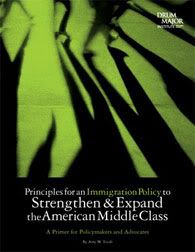After the last few days, I’m quite frankly drained. I was going to write another one of those “rallying call” stories, for everyone to buck up, stiff upper lip and all that. But instead I figured I’d tell you a little story about something that happened yesterday in the mist of Alito madness. Something that has changed my whole view of our little blogtopia.
Something that shows me that we really do have the opportunity to get things done.
Please bear with me here, but I will try to tell this story as briefly and coherently as possible.
It’ started back in Sept. when outraged by the Katrina situation, I posted this story up on the big orange board:
The “Rubberstamp Congress” Strategy for 2006
For six years every Republican in Washington has attached himself to Bush like a Siamese twin. All we have to do is make sure they don’t have a chance to distance themselves from his decisions. The message is simple:
“We need a congress that will ask the tough questions, and do the hard work necessary to solve this nation’s problems and not just RUBBERSTAMP every decision coming out of the White House. We don’t need a congress that’s so politically one sided that no one dares question the wisdom of making appointments based on ideology and politics rather than qualifications. We don’t need a congress that’s willing to make decisions based solely upon political partisanship, unwilling to question the wisdom of any policy or program that comes out of the White House. We don’t need a congress that’s just a bunch of yes-men, towing the party line. We face some of the most challenging times in our nations history and it will take real innovative thinking to solve these problems and meet these challenges. We need a congress that is willing to look for real solutions, not just how to score political points with the boss.”
Holding Bush accountable for his actions is good…..Making every Republican Congressmen or Senator accountable is better…. Who failed in Katrina? Who failed in Iraq? Who failed on 9-11? Who failed on the economy? Who failed on gas prices? Who failed to find bin Laden? Who failed on education? Every Republican that rubberstamped Bush’s policies and appointments without question or inspection, hell, sometimes without even reading them, that’s who failed. Brown, Chertoff, Tenet, the CIA, the FBI, no WMD’s, they’re all the Republican Congress’s fault for not asking the tough question, for not doing their jobs.
If we can organize this frame and stick to it like glue, everything that Bush does (or doesn’t do) between now and 2006 becomes another weight around the necks of the Republican Congress
Ok … A few people read the story and commented. My buddy Highacidity created a great graphic and posted it up, and after the usual few hours, the story fell off the board into diary oblivion. It made no impact really, just another dKos rambling.
Yesterday afternoon, I went cruising around big orange looking for a distraction from all the Alito ruckus and came across this:
Preempting SOTU: Exclusive dkos Rubberstamp Website Release, New DCCC Ad on Fox News
On Tuesday night, President Bush will have an opportunity to broadcast his framing of 2006 and the next set of Republican sham policies without fact-check and without interruption – except for the raucous applause of Republicans in Congress. His bully pulpit will be at its zenith – but we can fight back and give the Republicans a healthy dose of reality. That’s why we at the DCCC are picking Tuesday to launch an entire new website, as well as a new TV ad airing on Fox News in the hours leading up to his speech. But we thought it would be fun to give the dkos community an advance look. Click on the graphic to see the ad, go below the fold for the dkos username and password for our new “Rubberstamp” site exposing the ways in which your local Republicans have substituted blind obedience to President Bush for any semblance of loyalty to their constituents…
-snip-I’ve seen many insights into this here, but it’s worth reiterating that these are the themes we need to hammer home. The ethics problems engulfing the GOP are not a distraction from the Republican agenda – they are the Republican agenda. Tom DeLay and President Bush have orchestrated a pay-for-play agenda the likes of which we haven’t seen in at least a century, and the rest of the Republicans in Congress have rubber stamped it every step of the way. On every issue where massive, powerful special interests have gotten average Americans under their thumb, the Republicans have sold out to enshrine that imbalance in law — any Democratic legislation that tries to protect working Americans is barred from even reaching the House Floor.
We’ll be releasing this site to the public tomorrow at a press conference, but wanted to let you guys get an advance look at the goods. The idea is to document just how thoroughly Republicans have abdicated their responsibilities as Members of Congress to rubber stamp President Bush’s special interest giveaways. We want to show America that the culture of corruption has a cost, and that the local man or woman they’ve been sending to Washington has been a willing, eager participant.
GOPRubberstamp.org
More
At this point I am quite frankly blown away, then I move down to leave a comment. The first comment I see is by my buddy Highacidity, with the “Rubber Stamp” graphic she had made for me.
Sounds like a similar… (4.00 / 4)
… train of thought Kossack Duke1676 was exploring in this diary last September
Highacidity
The response from the DCCC rep:
Yup (4.00 / 2)
I believe that was one of the “insights” I was referring to.
Online Editor for the DCCC
You could knock me over with a feather.
So here’s the little lesson I take away from this:
Although at times like these we feel like no one really listens to us, or cares about our concerns, but people really are listening. People who have more power than us to make things happen, people who hear our words and have the ability to take action on them.
So tonight when I turn on FOX (that’ll be a first) to see the ad run, and think about the possible effect it might have, I’ll crack a cold one, put up my feet, and have a huge grin on my face. Just knowing that in some miniscule way my voice was heard and I possibly played a small part in changing the current paradigm is enough for me.
That’s enough … it fuels my fire.
Cross Posted from Manning the Barricades






 Rep Peter King (R-NY3rd),
Rep Peter King (R-NY3rd),